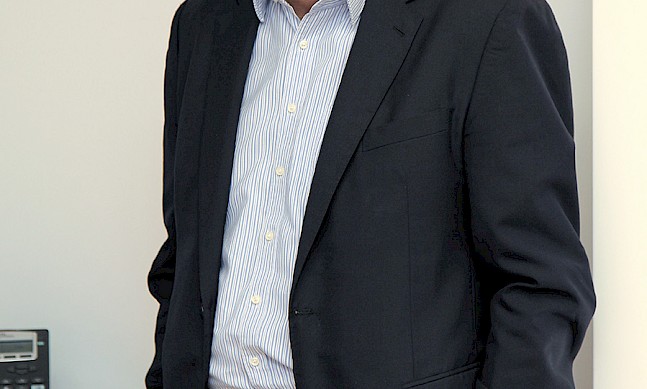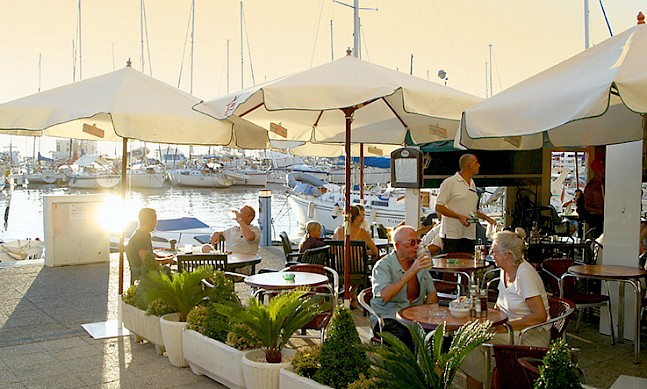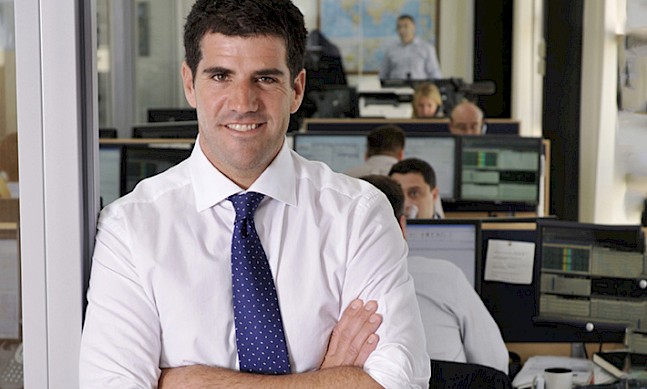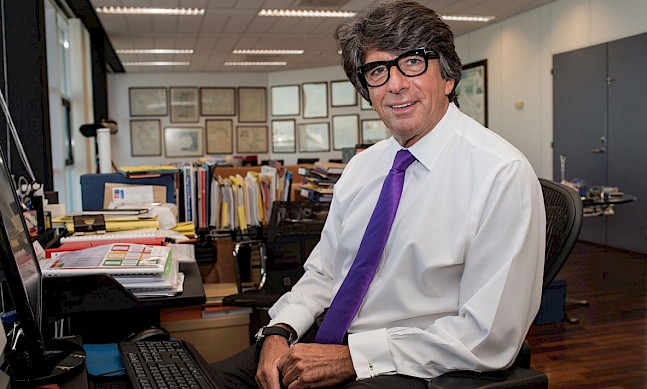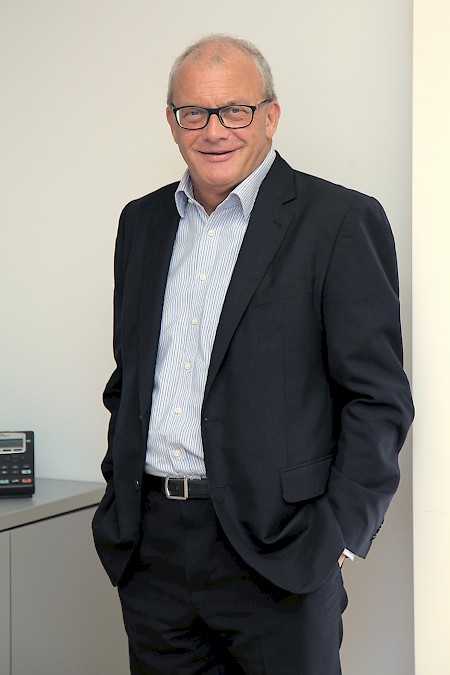
Already the largest telecommunications company in Gibraltar, Gibtelecom has made strides towards securing for itself a role as a global carrier through its investment in the Europe India Gateway (EIG) submarine cable. Providing capacity to companies as far afield as South Africa and Australia, the company has made a huge contribution to positioning the jurisdiction as an international communications hub. Telecoms industry veteran Tim Bristow, who has led Gibtelecom since 2002, explained to The Report Company how the business went from serving a domestic market of just 32,000 people to compete on an international level with some of the world’s largest industry players.
The Report Company: How has the company evolved since you took on this role in 2002?
Tim Bristow: Gibtelecom has really gone through three phases in its development. First of all, there was the privatisation of what was a local government telephone department 25 years ago when Nynex of the United States were brought in as the partners of the government. This meant moving a public sector entity to a private sector business, with all the improvements for customer service and quality of provision which brought along with it. That was phase one and before my time.
My time came about when we carried out the merger between Gibraltar Nynex Communications Ltd with Gibraltar Telecommunications International Ltd, a company that was in the BT family and before that Cable & Wireless. This was the second phase. The third phase was then to become an all-in-one service provider, so a one-stop shop for everything where you can buy your mobile, your internet broadband, your fixed line and business enterprise services, under a unified bill.
The market here is highly regulated. It’s a competitive market, although very small, so part of the journey we are on now is to develop a global business predominantly through the Europe India Gateway (EIG) submarine cable. This system runs 15,000 kilometres from London to Mumbai with 13 drop-off points along the way, and interconnecting to other global and regional sea cables.
TRC: How did Gibtelecom become involved with that project, and how much of a stake do you hold?
TB: We own just slightly over four percent of the interest in the EIG cable. It’s about an $800 million project. The company for a long time had been interested in trying to get involved in submarine cable systems. Indeed, one of the reasons Nynex first came here was the potential interest in a cable that might have landed in Gibraltar.
Having this submarine cable provides route diversity. Our cables and those of our competitors predominantly run across land through to Spain, and land cables are prone to more disruptions. Whereas traditionally, our routes all went across the land border, now we also go out by sea westwards to London and eastbound by sea to Monaco and then up to Marseilles, where we’ve built points of presence. We also have a point of presence in Madrid.
On the back of having this global cable, we’ve started to build a European network. We are now in the business of putting traffic onto that cable or into those points of presence that isn’t necessarily coming through Gibraltar. For instance, we’ve done some business where we’re carrying a small amount of traffic into Europe for a substantial sized Australian company. We are also carrying traffic from a South African company on the EIG cable into Europe.
TRC: What contribution has the project had in raising Gibraltar’s profile?
TB: Gibraltar’s telecom companies, and Gibtelecom in particular, have always been there at the front end of the curve, keeping up to date with technological developments that are taking place at a fast pace around the world. If you’re starting to put yourself out in the global community then by definition you’re going to get better known than you would be just being based in Gibraltar, so clearly it helps.
The cable is bringing us into regular contact with our 16 consortium partners, who are all large telco companies such as BT, Vodafone, Telekom South Africa, Saudi Arabia Telecom, AT&T and Verizon amongst others. These giants of the carriers world all probably have submarine cable departments bigger than our company. We’ve done well to get there, but it’s taken effort and energy. We’re the smallest consortium member, and punching above our weight.
We were always well-connected, especially to the UK. The UK is a major market for us, both for our residential consumers as well as our business enterprise customers. What this project does is provide us with a diverse and more resilient routing, so if there are problems connecting by sea, we can go by land, and if there were problems connecting by land, we could go by sea. We’re also much more in charge of our own destiny than we were when we were dependent on third-party suppliers.
Communications are so important in today’s world. For business and for the private citizen, it’s almost become the utility that people want most of all, so it’s very important to be able to have good routing out of Gibraltar and this is what this cable, as well as our links through Spain, provide for us.
TRC: Do you see scope to join other, similar projects?
TB: There is nothing currently on the table, but once you’ve joined the submarine cable world I think it opens other doors and opportunities. Very nearly all of the world’s global data and voice traffic travels by submarine cables, and therefore we’ve joined an industry which provides exciting opportunities going forward.
TRC: What role has Gibtelecom played in diversifying Gibraltar’s economy?
TB: The e-gaming businesses that decided to position themselves in Gibraltar couldn’t have come here unless the basic communications were there, because they are thoroughly dependent on communications for their business. Since they came in, they have helped us to bring up our game even further, because they are very demanding clients. Unlike a bank, where if you go to take your money out of a machine at the bank and it’s not working you may wait and go back a couple of hours later, in the e-gaming space, if it doesn’t work, their customers can go somewhere else immediately. Working closely with these enterprise customers and developing their requirements has played a part in establishing Gibraltar as the world’s leading egaming jurisdiction.
“Gibraltar’s telecom companies, and Gibtelecom in particular, have always been there at the front end of the curve, keeping up to date with technological developments that are taking place at a fast pace around the world”Tweet This
TRC: What can you tell us about your data centre capacity?
TB: Gibtelecom is the largest data centre provider on the Rock, with over 700m2 of space in a secure site well above sea level. This business started on the back of the e-gaming industry, who wanted to contract out this activity and we moved very quickly into this space. We are able to provide them with data centre capacity to host their servers and infrastructure to keep them running around the clock. We are Payment Card Industry certified and have a network operations centre on site, with qualified engineers 24 hours a day every day of the year. It has been the backbone of the e-gaming industry in Gibraltar and its success is evident by the fact that a number of competitors have since moved into the data centre business here on the Rock.
I think the challenge going forward will be to diversify our customer base even further, in order to become less dependent on e-gaming customers who are locally based. Gibraltar is very attractive fiscally, it is an EU jurisdiction which offers a good package for employees, and it would be good to see if we could, through our data centres and excellent international communications, attract some other businesses which are heavily dependent on technology and communications.
TRC: What sort of businesses do you think you might be able to attract?
TB: It’s limitless. So many businesses now are dependent on having large databases and requiring good communications. Gibtelecom can provide space for people to host their infrastructure, and we’re looking at providing cloud services within the next year or two. We have excellent communications links, where we can take you out from Gibraltar by sea east and west, we can take you north by land, and on top of that we’ve got several European points of presence to where we have pushed out the Company’s telecoms to improve peering and reliance.
TRC: What is your current focus for the domestic market?
TB: We are rolling out a super-fast broadband product which we call SuperSwift. This provides up to 100Mbps to every household and business, putting Gibtelecom well ahead of EU averages. Because we’re only a population of 32,000, it sounds like this would be an easy task, but in fact it is not at all, because topographically Gibraltar is quite difficult. We have had to build remote offices at around 50 sites around the Rock in order to take the fibre close to people’s households and places of work. We’ve been doing it over the last two years and are now in the later stages of the rollout.
The other project domestically which has a huge amount of focus at this time, is the roll out of a 4G network throughout the territory and we’re on track to launch in autumn 2015. We’re partnering with our long-time mobile suppliers, Ericsson, on that with a substantial investment of around €4-5million. This project is really essential for customer since it’s all very well having fast speeds in people’s fixed locations, but the requirement for data on the move is growing exponentially.
In terms of Gibtelecom at home, we believe that we’re keeping pace with the technology developments. We’re keeping pace in mobile, and we’ve got a whole string of business enterprise products for large businesses, such as point-to-point connections between here and anywhere else in the world, and running data centres where we can provide them with a home for their servers and infrastructure. We’re the only A to Z provider in Gibraltar offering the complete range of communications services under one roof.
TRC: How much does Gibtelecom invest into innovation?
TB: We’ve probably been spending around 25 percent of our income on technological investments. We’re not getting the economies of scale that you would see in a larger jurisdiction because the core cost for these things is still the same, no matter if you’re serving 30,000 or 30 million.
TRC: How much of a challenge is it to find well-trained human resources in Gibraltar?
TB: In this industry, the top end technological skills are hard to come by across the world. We’re fortunate in that Gibraltar is an attractive place to work, but it is a constant challenge. We’ve got a lot of home-grown people who we have put through training and given various experiences, but we also have to supplement that with readymade experts from overseas. We’ve also been fortunate that we have had various local people going away and gaining industry experience overseas, particularly in the UK, before returning home to Gibraltar bringing with them the real-life knowledge from other telecoms companies and related industries.
It is definitely a continuing challenge because of the skill base, particularly in data communications technologies. We’ve recently launched an employer-led degree programme where we are hoping to encourage local youngsters, with an eye to the sciences, to join us early on through offering financial and employment benefits. We will help them to choose the specific degree related to engineering and communications, and for that we will pay them an allowance during the course of their studies. If they achieve a top degree, we will give them a golden handshake if they become a company employee.
TRC: How important is Gibtelecom to Gibraltar?
TB: Communications is an important pillar of any economy, and even more so in the case of an economy like Gibraltar, which is interacting with the wider world. Communications takes a central role. I think that if companies like Gibtelecom didn’t exist, it would be much more difficult for Gibraltar to market itself as a jurisdiction where you can do good business around the world.
“Communications is an important pillar of any economy, and even more so in the case of an economy like Gibraltar, which is interacting with the wider world”Tweet This




